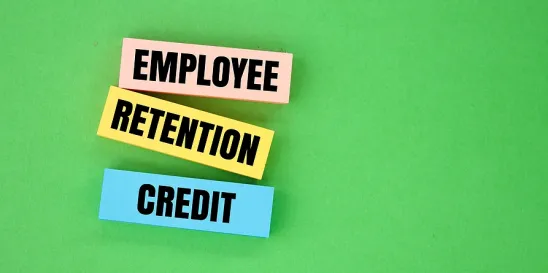On September 14, 2023, the Internal Revenue Service (IRS) released Employee Retention Credit (ERC) guidance placing a moratorium on processing new ERC claims due to a surge in questionable claim submissions. Claims already submitted will continue to be processed, but at a slower rate due to detailed compliance reviews. The guidance included a caution about using entities that aggressively market and promote the submission of ineligible ERC claims, explained the reasons for the moratorium on claims processing, and discussed new guidance to assist employers in determining ERC eligibility.
The moratorium was put in place following the IRS’s recent issuance of final regulations authorizing the assessment and recapture of erroneous refunds of ERCs and other COVID-19 pandemic-related tax credits.
The ERC was included in the Coronavirus Aid, Relief, and Economic Security (CARES) Act to provide businesses whose operations were fully or partially suspended due to government orders during the height of the COVID-19 pandemic with a refundable credit against the employer component of employment taxes, equal to 50 percent of qualified wages paid in 2020. The American Rescue Plan Act, enacted in March 2021, expanded the credit to 70 percent of qualified wages paid in 2021. The Infrastructure Investment and Jobs Act, enacted on November 15, 2021, retroactively eliminated the ability to file ERC claims for eligible wages paid after September 30, 2021.
Quick Hits
- The IRS has ordered a moratorium to run through at least December 31, 2023, on processing new Employee Retention Credit claims due to an increase in suspect claim submissions.
- The IRS is working to add new protections and safeguards to prevent bad claims from being filed, the IRS commissioner said.
- Due to stricter compliance reviews during the moratorium, existing ERC claims may take 180 days or longer to process.
IRS Warns of ERC Scam Promotions
IRS Commissioner Danny Werfel warned that “honest small business owners [are] being scammed by unscrupulous actors.” The IRS previously issued guidance to help ERC applicants avoid “nefarious actors,” and warned of the following:
- Unsolicited ads, calls, emails, or text messages from someone the employer doesn’t know.
- Statements that the promoter or company can determine ERC eligibility within minutes.
- Large upfront fees to claim the credit.
- Fees based on a percentage of the refund amount of the Employee Retention Credit claimed—employers, the IRS notes, “should always avoid a tax preparer basing their fee on the size of the refund.”
- Statements from the promoter that the employer qualifies for the credit before any discussion about the employer’s tax situation.
- Statements from the promoter urging the employer to submit the claim because there is nothing to lose. In reality, those improperly receiving the credit could have to repay the credit—along with substantial interest and penalties.
Commissioner Werfel reiterated his concern and caution for small businesses that have already begun the ERC process, stating, “For those people being pressured by promoters to apply for the Employee Retention Credit, I urge them to immediately pause and review their situation while we look to add new protections and safeguards to stop bad claims from ever coming in. In the meantime, businesses should seek out a trusted tax professional who actually understands the complex ERC rules, not a promoter or marketer hustling to get a hefty contingency fee.”
“Businesses that receive ERC payments improperly face the daunting prospect of paying those back, so we urge the utmost caution,” Commissioner Werfel also warned. “The moratorium will help protect taxpayers by adding a new safety net onto this program to focus on fraudulent claims and scammers taking advantage of honest taxpayers,” he said.
The IRS announced the development of new initiatives to help businesses that find themselves victims of underhanded promoters. These include a repayment settlement program for businesses that received improper ERC payments. (Additional information will be forthcoming.) The IRS is also finalizing details for a special withdrawal option for businesses that have filed ERC claims, but whose claims have not yet been processed. The IRS stated that this option would allow taxpayers “to avoid possible repayment issues and paying promoters contingency fees.” However, the IRS noted, withdrawing willfully filed fraudulent claims will not exempt businesses from potential criminal investigation and prosecution.
Moratorium on Processing New Claims and Continued Processing of Previous ERC Claims
The IRS ordered an immediate moratorium, beginning September 14, 2023, to run through at least December 31, 2023, on processing new claims. Claims that were submitted prior to September 14 will continue to be processed. However, the IRS has increasingly focused claims review on audit work and criminal investigations related to promoters and businesses filing suspect claims. Many claims will face heightened scrutiny and IRS requests for additional documentation to ensure legitimate claims. Processing times could stretch up to 180 days or longer, if further review is required.
Additional Eligibility Guidance
To assist employers navigating the ERC claims process, the IRS released a new ERC Eligibility Checklist. The checklist can help employers navigate the eligibility criteria to confirm eligibility for the ERC. The IRS continues to advise employers that need help claiming the credit to work with a trusted tax professional.






 />i
/>i


